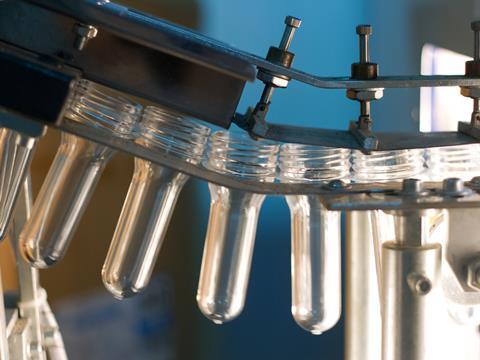
What are the most important things to consider when working towards holistic packaging sustainability success? There are nine fundamental steps that companies should bear in mind in these efforts, says Dr. Thomas Gröner, director at TG PACK SOLUTIONS.
There’s no doubt that the plastic packaging industry is going through transformational changes toward sustainability. This transformation should be seen as a chance, not as a threat.
We need to look at sustainability holistically, and at the same time, we have to take into consideration the specific requirements of individual companies in a flexible way. There is no one-size-fits-all solution in existence. It is mandatory to constantly evaluate which activities make sense for a certain company to achieve concrete, significant, and noticeable sustainability improvements in the best way.
I believe that it is useful to break sustainability for companies producing plastic packaging down into nine core areas of activity: materials, products, production and company footprint, people, customer, targets and KPIs, communication, regulation, and external collaboration.
Within these areas, you can work out specifically for each and every single company custom-fit and relevant actions to improve sustainability. Below you will find five examples:
- Increasing the use of recycled plastic can be a great lever for one company to increase sustainability. In contrast, for another company, this can be irrelevant because of constraints in terms of technology or restrictions from the products that will be packed (e.g. food contact packaging).
- For an electricity intense operation, the use of CO2-neutral electricity (green electricity) can significantly reduce the CO2 footprint of the company – in many cases at a reasonable on-cost. Such switches can be done in steps if needed.
- Customer-oriented sustainability certification (e.g. EcoVadis) is as important as following the relevant regulatory changes such as new supply chain laws in various countries like Germany and Switzerland.
- From a sustainability strategy, we can derive goals to be monitored by KPIs. This brings clarity and transparency.
- External and internal communication has always had a very important role to play in the sustainability arena. “Walk the talk and talk the walk”. Sustainability communication is not only essential for our markets and customers, but also in terms of employer branding: the attractivity of an employer for existing and potential new employees. Attracting the best people is of growing concern in our industry.
These are just five examples from a big bunch of possibilities to improve the sustainability of a plastic packaging company. Every sustainability program needs to be tailor-made for the individual company concerned in order for it to be relevant and impactful.
The transformation of our industry towards sustainability is essential. I would even say this transformation is critical for the survival of the industry and the companies within it. The potential solutions are many, but they have to be actionable and have to make a difference. TG PACK SOLUTIONS is here to support plastic packaging producers on this journey.
Dr. Thomas Gröner is an R&D and sustainability professional with an entrepreneurial focus, with more than 30 years of experience in packaging across the entire value chain. In 2021 he founded his own company, TG PACK SOLUTIONS, an independent consultancy to the packaging value chain focusing on sustainability and innovation.














No comments yet